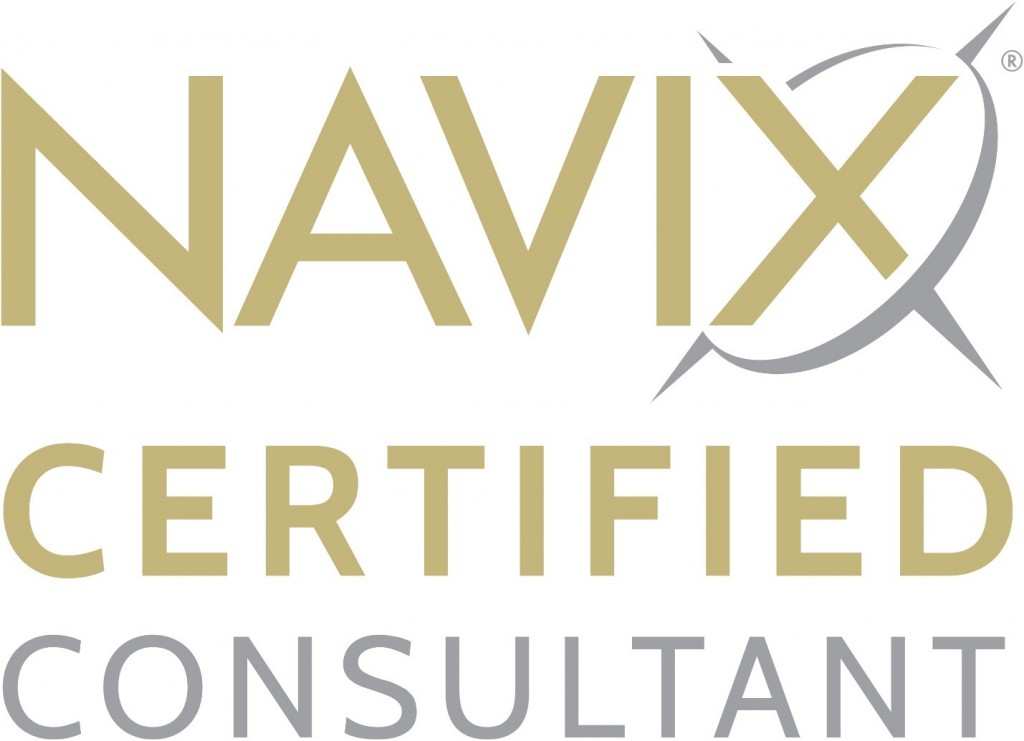
Posts Tagged "Family Business"
In Family-Owned Businesses, Equal is Not Fair and Fair is Not Equal
By: Patrick Ungashick

Do you have at least one child working in your family business, and at least one child who is not working in your business? If you do, and if you want to treat all of your children fairly in your business exit and succession planning, prepare not to treat them equally. Because in exit planning for family businesses, fair is not equal and equal is not fair.
To show why, here’s a true story involving a previous client.A Client Story
Dad and Mom had started a construction company nearly forty years earlier. Along the way, Dad and Mom had raised two children: one Son and one Daughter. Son began working in the company right out of school, and eventually became the company’s President. As part of Dad and Mom’s exit planning, they wanted to pass their business down to the Son eventually.
Other than their company, Dad and Mom owned a modest home, a little cash, and a significant amount of raw land. Dad and Mom were worried that if they gave the business to the Son, which seemed fair to do, then they would not have any means to treat their Daughter equally, which seemed unfair to her. But while splitting up their assets 50/50 between the two children would treat them equally, it seemed unfair to the Son.
At that point in our exit planning, we suggested that Dad and Mom have their the two most valuable assets appraised: the company and the land. Independent appraisers were brought in to value each asset. Purely coincidentally, the company and the land were both valued at almost exactly $5 million each. With this information in hand, we suggested to Dad and Mom that their plan should be to give the business to the Son, and the land to the Daughter. After all, this was nearly perfectly equal.
Upon hearing our recommendation, Mom became upset to the point of tears. She said that she understood this seemed to be an equal solution, but it struck her as unfair—for both of her children. As she explained, the land was undeveloped, pristine forest, and grassland. They used it for hunting and camping. Everyone in the family hoped to keep it for generations to come. Giving the land to the Daughter was not providing her with any wealth or income—actually, they were giving her an annual property tax bill. Compared to the company, the land was a financial burden. That was not fair to the Daughter.
As for the Son, giving him the business seemed the right thing to do. However, Dad and Mom appreciated that even though the company was profitable and generated wealth, it was inherently risky, as construction is a volatile and uncertain industry. The business would require the son to personally guarantee his assets to collateralize debt, whereas the land was debt-free. The company could one day be diminished or worthless through no fault of the Son. In contrast, the land would always exist and likely have at least some value. Furthermore, they wanted the Son and his heirs to also enjoy the use of the land, without forever needing to ask anybody for permission.
For these reasons, giving the Son the business, and the Daughter the land seemed entirely unfair. There seemed no way to treat the children fairly and equally.
Family Business = Complicated
This real-world example is unusually simple: two kids, with one involved in the business, and not participating in the business. Two main assets: the company and the land, both worth the same amount of money from a market value standpoint. Yet, for all this situation’s simplicity, it illustrates the remarkably tricky challenge of being fair to everybody when trying to design and implement an exit plan for family–owned businesses.
Many real-world situations are more complex than what this client faced. For example, things can get even more complicated if any of the following are true:
- There are more than just two kids
- Multiple children work (or have worked) in the business, and thus have competing expectations and interests
- Some children need specialized medical care or have struggled with issues like substance abuse, financial mismanagement, or marital instability
- Dad and Mom have little to no significant assets outside of the company
- Dad or Mom in in poor health, and there may be a need to rush a process
- Not all of the family members get along with one another
The Solution? Focus on Fair, Not Equal
In situations where a family is trying to treat everybody fairly, rarely it is possible or advantageous to treat everybody equally. Typically, you have to be unequal to be fair.
For example, children who have worked in a family business for years usually come to expect that they will one day receive a larger portion of that company than their siblings. That may not be equal, but to many families, this is the right and fair thing to do out of respect for the service and contribution those children working in the company have made to the company. Dividing a company into equal parts among children who have not worked equally in that company rarely produces a stable and happy outcome.
People are different. No two people are identical, and thus no two people are equal in terms of their skills, desires, traits, wants, and needs. Trying to treat people who are not identical equally usually ends up being unfair because they are different people.
Assets are different too. Different assets have inescapably different characteristics and qualities. As the mother from this true story pointed out, $5 million worth of raw land carries very different opportunities and disadvantages compared to $5 million worth of a closely-held business. Cash, marketable securities, commercial real estate, vacation properties—all these assets too are, unavoidably, “not equal,” even if the worth is the same in terms of market value. Again, approaching these assets as equals rarely creates outcomes that will be seen as fair.
There are no one-sized–fits–all solution with family businesses and family members. But, understanding that equal is not fair, and fair is not equal, allows family members to consider solutions that are more likely to be seen as “fair” by everybody involved.
To learn more, watch our free educational webinar or contact us with your questions.
If you have a quick question coming out of this article or, if you want to discuss your situation in more detail, we can set up a confidential and complimentary phone consultation at your convenience contact Tim 772-221-4499
Seven Requirements to Pull Off a Family Business Exit
By: Patrick Ungashick

If your exit strategy is to pass your business down to a member of your family, you face a unique set of issues, different from business owners who plan on selling their company when they exit. Woven into these issues are family dynamics, relationships, and realities which can at the very least complicate matters, and at worst prevent a successful exit. In our experience, there are seven conditions that you must address to successfully and happily pass a business down to the next generation. Reviewing these conditions helps you evaluate how prepared you are to pass your business down to family.
1st Condition: The Company Must Run without You
If you intend to pass your business down to your children and have the business not just survive the transition but thrive going forward, then the company must be able to run without you. There are two sides to “running without you.” The first deals with processes: all the company’s essential day-to-day operations including sales (from lead generation through closing), delivery of products/services, finance, problem-solving, etc. must operate effectively without your involvement. The second aspect deals with people: all critical internal and external relationships must conduct without your involvement and presence. If the company’s important processes or people relationships cannot function without you, then you cannot pass it down to your children without risking disaster.
Creating a company that runs without you is not easy. Building a team of sufficient caliber to run and grow the company without you takes years of planning and work.
2nd Condition: Your Child (or Children) Can Run the Company
Because the first condition is that the company must be able to run without you, the second condition must be that your child (or children) can run the company. It’s not enough to have hard-working, smart, mature children just working in your family business. One or more of them must have the talent, vision, and drive to lead the company today and into the foreseeable future. Finding successor leadership of this caliber is hard anywhere—finding or developing the leadership of this caliber within your family can be even more challenging. Also, it is important that your exit and succession planning build time into the process to let your children demonstrate that they can run the company before fully turning it over to them. They will need the opportunity to prove to you, other employees, customers, lenders, etc. that they have earned the future leadership role, rather than received it due to nepotism. (See the 5th Condition below.)
3rd Condition: Your Children are Prepared for the Risks of Ownership
Your children must be more than just qualified and proven to run the company; they also must be prepared for the risks that come with owning the company. Business ownership carries inherent risks, and in many family businesses, the successor children are unfamiliar with these risks and have never had to shoulder their responsibilities. For example, if you personally guarantee the company’s line of credit or other financial obligations, your children may be unfamiliar with this obligation and lack sufficient personal wealth to meet current and future credit requirements. Your children also may have never experienced owning the company through difficult economic times, such as a recession or industry downturn. It is not possible to protect your children from every business risk, but the key question is, are they prepared to handle the risks that you know come with ownership.
4th Condition: The Rest of the Family Supports the Succession
One of the great challenges within most family-owned and led companies is getting all the necessary family members on the same page while avoiding decisions or actions that cause dissention and strife. When it comes to passing a business down to the next generation of family leaders, preventing dissention often gets much harder, as most if not all family members are impacted in some manner by this event. For example, if you have some children working in the company but some who are not, then treating all your children fairlymay be difficult if only some children are going to “get” the business while others won’t. These issues can be emotional and sensitive within the most tight-knit, close families. Add into the picture complicating factors like second marriages or adult-age children who are not acting like adults, and fulfill every family member’s wants, and needs may seem impossible. Again, the sooner family-led companies start talking about and addressing these issues, the more time they give themselves to achieve a successful outcome.
5th Condition: The Rest of the Company Supports the Succession
To pass a business down to your children, your family must ultimately support the exit and succession plan, and the rest of the company’s key leaders must support it too. To the extent, you have addressed the 2nd and 3rd conditions described above, likely you will secure the support from the company’s non-family key employees because they will have seen your children effectively running the company and qualified to be owners. However, if you have co-owners (business partners) outside of your nuclear family, gaining their support may be more complicated no matter how qualified your children may be. Typically, your partners will not want to see the business that they own a portion of being passed down to your kids, either because they want their children (if applicable) to have the ownership opportunity, or because they want to sell the company for an attractive price. In these situations, the simplest solutions (share the company between everybody’s kids, or buy out the other owners) are rarely simple to implement.
6th Condition: You Can Reach Financial Freedom without Over Burdening the Company
Most business owners are financially dependent on the company. To some degree, you need your income from the company to support your current lifestyle, and one day you will need to convert some to all of your business wealth into personal wealth to reach financial freedom and retire. You can’t happily and successfully exit and pass your company to your children if that cuts you off from your financial security.
Owners who exit by way of selling their company to an outside buyer have an apparent mechanism for how they will reach financial freedom—the liquidity event created with the company sale. However, if you intend to pass the company to your children, there usually will not be a liquidity event. Alternative mechanisms, such as the company/kids borrowing money to buy you out, or the company keeping you on the payroll indefinitely, can help you reach financial freedom but they create significant long-term financial burdens (and sometimes tax problems) for the company. Ideally, family members will recognize and start addressing this issue long before the current owner(s) want to exit and adopt tax-favorable strategies to build wealth outside the company long before you are ready to exit.
7th Condition: You Have a Plan for Dealing with the Taxes
Passing a business to your children triggers potential transfer taxes—commonly gift taxes (if the transfers occur while living) and estate taxes (if the transfers occur at death). A high tax bill can cripple even the soundest succession plan. Recent tax law changes provide some tax relief, but only through 2025. After that year, the potential taxes owed on asset transfers are scheduled to return to significantly higher levels. You must consult your tax advisors to determine your situation, and if you need to consider taking action as part of your overall exit plan.
Your Last Five Years
Preparing and implementing an effective plan to pass a company from one generation to the next requires a thorough review of the company and the family, followed by discussions, brainstorming, modeling, and assistance from experienced advisors. In other words, exit planning takes time and work. If you are telling yourself you want to exit sometime in the next five years, now is the time to take action to address these seven conditions in your family business. For help, download our complimentary ebook Your Last Five Years: How the Final 60 Months Will Make or Break Your Exit Success to get started.
If you have a quick question coming out of this article or, if you want to discuss your situation in more detail, we can set up a confidential and complimentary phone consultation at your convenience contact Tim 772-221-4499.

Planning on Passing Your Business to the Kids? Consider Selling a Piece of It First
If your exit strategy is to pass your business down to the next generation of family members, selling a piece of the company to an outside buyer may surprisingly make a lot of sense as part of your overall exit plan. Normally, keeping the business in the family means just that—preserving family ownership, not selling to an outsider. But selling a minority interest (less than 50%) of the company to an outside investor can help overcome some of the more difficult challenges that family business owners face in their exit and succession planning. Here’s how.
Selling a non-controlling interest in the company to an outside investor, often a private equity group (PEG) or a family office, can solve four problems that commonly arise when trying to achieve a smooth exit for outgoing family owners and prepare the next generation of family owners to lead the company effectively. These four problems include:
-
1. Liquidity for the Outgoing Owners
One of the most challenging issues to resolve is how to provide financial income and economic freedom for the outgoing owners, whom we will call Dad and Mom. Commonly, Dad and Mom have invested heavily in the company over the years, and consequently, a significant portion of their net worth is tied up in the company and its supporting assets, leaving Dad and Mom unable to retire or step down from the company without somehow obtaining cash from the business. Yet the company typically does not have a large amount of surplus cash sitting around to fund Dad and Mom’s exit. As they lack the cash, the most common solution is keeping Mom and Dad on the payroll well after the next generation has taken over the company. This rarely works for very long. At some point, Dad and Mom may come to resent and/or worry about being continuously dependent on the company. Or, the next generation, whom we will call the Kids, may grow tired of the payroll burden if they do not see any light at the end of the tunnel. Keeping Dad and Mom permanently on the payroll is not a winning solution.
Selling a minority interest of the company to an outside investor presents a more viable solution on how to create financial independence for Dad and Mom. The outside investor’s cash infusion can fund some or all of the outgoing parents’ financial needs, freeing Dad and Mom from staying on the payroll indefinitely and giving them power over their own assets. Meanwhile, the Kids maintain a controlling interest in the company. At a future date, they may pursue buying out the minority investor if they desire to restore 100% family ownership of the company.
2. Eliminating Personal Guarantees
A second significant financial obstacle common within family-owned companies deals with personal guarantees on the company’s commercial or trade debt. Often, Dad and Mom have covered the guarantees up to that point, but the Kids lack the collateral and leadership track record to assume that responsibility when Dad and Mom exit. This scenario puts Dad and Mom in the uncomfortable situation of turning over operational control of the company to the Kids while having to stay on the hook for the financial risk. Few parents will be enthusiastic about that prospect. The Kids have reason to be unhappy too, as they will likely wish to avoid burdening their parents. Also, as long as Dad and Mom provide the personal guarantees, they will have the power to exert influence or control over the company, which is typically a sensitive subject for the Kids. If the issue of personal guarantees remains unaddressed, it can prevent the entire family from achieving a successful exit.
Selling a minority portion of the company to an outside investor, such as a PEG or family office, can eliminate the personal guarantee barrier to exit success. The entrance of an outside investor can give lenders sufficient confidence and collateral to remove their requirement for any personal guarantees. Furthermore, PEGs and family offices can often secure for the company more favorable debt terms and rates due to their experience and long-standing relationships with their preferred lenders.
3. Insufficient Professional Management
One other major challenge within many family businesses is how to inject professional management expertise into the company without surrendering the family’s leadership of the company. This need becomes acute as the company grows and transitions from one ownership generation to the next. You have likely witnessed family-led companies that struggled or perhaps even collapsed because the successor generation lacked sufficient leadership talent and experience to run the company.
Bringing in an outside investor can upgrade the company’s professional management without displacing the family’s controlling interest. First, outside investors will usually occupy several seats on the company’s board of directors. The right investor will fill these seats with quality leaders who enhance the company’s strategic leadership, experience, and industry contacts. Additionally, as part of its investment, the outside investor may provide funds to hire new managers and employees to work for the family owner. Commonly needed positions include an experienced chief financial officer (CFO) and professional sales manager/leader. A significant upgrade in talent and experience at the board and management team level is achieved without undermining the family’s operational control of the company.
4. Objective Advice and Counsel
Within family-owned companies, personal relationships and dynamics can encroach into business matters, blurring communications, responsibilities, and accountabilities. These relationships can harm company growth and prevent Dad, Mom, and the Kids from achieving a smooth exit and succession. Even within well-functioning family relationships, when facing serious business issues, it is difficult to maintain objectivity when there are only family members in the room.
Here, too, an outside investor can add value to the family business as it moves through a succession process. The investor, again through its minority representation on the board, adds the missing third-party objectivity, perspective, and controls. For example, the investor will likely require the company to prepare annual business plans and budgets and periodically review them at the board level. Also, executive compensation—always a touchy subject in a family-owned company—will be set according to market rates and evaluated objectively according to human resources best practices. These types of steps reduce the risk of nepotism and address the concern that family politics will detrimentally influence major business decisions.
Conclusion
For the benefits of succession to materialize, family-owned businesses must work with the “right” investor – one whose values, business model, and expectations align with those of the family. As such, finding the right investor will take time and careful preparation. Ironically, the best way to keep the business in the family may be to sell a piece of the business to somebody outside of the family.
To discuss your unique business, and how to plan for and achieve a successful exit, Call 772-210-4499 or email Tim to schedule a confidential, complimentary consultation.
Planning to Pass Your Business to Your Family? Prepare to be Unfair
Like many parents who own a successful family business, you may be thinking of passing the business to your children. You have built a great operation, and you are proud to present this opportunity to your family.
While making the decision to keep the business within the family may be straightforward, getting that done without harming family relationships often proves more difficult. Based on the US Small Business Administration statistics, chances are that your business will not survive the second generation:
- Only 30% of family owned businesses survive to the second generation
- Only 12% are still viable into the third generation
- Only about 3% are still viable into the fourth generation
LEARN MORE
Sign up for the complimentary educational webinar on this topic.
Date: Tuesday May 23, 2017
Time: 2:00 pm – 3:00 pm EDT.
Click Here to REGISTER
READ MORE, LEARN MORE, WATCH MORE:
For more on this topic- Click here to read case studies, listen in on the complimentary educational webinars, and watch videos on this topic.
Call 772-210-4499 or email to find out more about this webinar and exit planning solutions. Ask about our complimentary proprietary tools and checklists. All inquiries are confidential.


 Tim is a Consultant to Business, Government and Not-for-Profits Organizations specializing in innovative and challenging ways for organizations to survive, to thrive and to build their teams.
Tim is a Consultant to Business, Government and Not-for-Profits Organizations specializing in innovative and challenging ways for organizations to survive, to thrive and to build their teams.